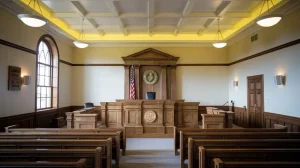Using social media as evidence in criminal courtrooms in Charlotte and throughout North Carolina has become an everyday reality. Facebook messages, Instagram chats, and other online  communications can strengthen or undercut a case when introduced at trial. Yet questions of authenticity—Is the social media content and the source of those materials identifiable?—and relevance—Does it matter to the issues being tried?—are becoming more and more common during trials.
communications can strengthen or undercut a case when introduced at trial. Yet questions of authenticity—Is the social media content and the source of those materials identifiable?—and relevance—Does it matter to the issues being tried?—are becoming more and more common during trials.
In North Carolina, these inquiries fall under the North Carolina Rules of Evidence, which guide judges and attorneys in determining which materials the jury is allowed to see. A recent appellate opinion, State v. Davenport, provides an up-close look at how courts tackle social media evidence in serious felony prosecutions.
By examining pictures taken of Facebook Messenger images displayed on a cell phone, the court explored how to authenticate digital content and manage related evidence (like 911 logs) to ensure a fair process. Below, we break down the facts of the case, the legal standards applied, and the broader implications for defendants facing criminal charges and attorneys dealing with social media evidence in the Tar Heel State.
 Carolina Criminal Defense & DUI Lawyer Updates
Carolina Criminal Defense & DUI Lawyer Updates was released to the custody of his parents pending further legal proceedings.
was released to the custody of his parents pending further legal proceedings. press charges.” In reality, once law enforcement has arrested someone or a warrant, criminal summons, or citation has been issued, the authority to proceed rests with the State—not necessarily the witness or alleged victim.
press charges.” In reality, once law enforcement has arrested someone or a warrant, criminal summons, or citation has been issued, the authority to proceed rests with the State—not necessarily the witness or alleged victim. convicted, the long-term consequences could include a felony conviction record, potential jail or prison time, and issues finding housing or employment in the future.
convicted, the long-term consequences could include a felony conviction record, potential jail or prison time, and issues finding housing or employment in the future.